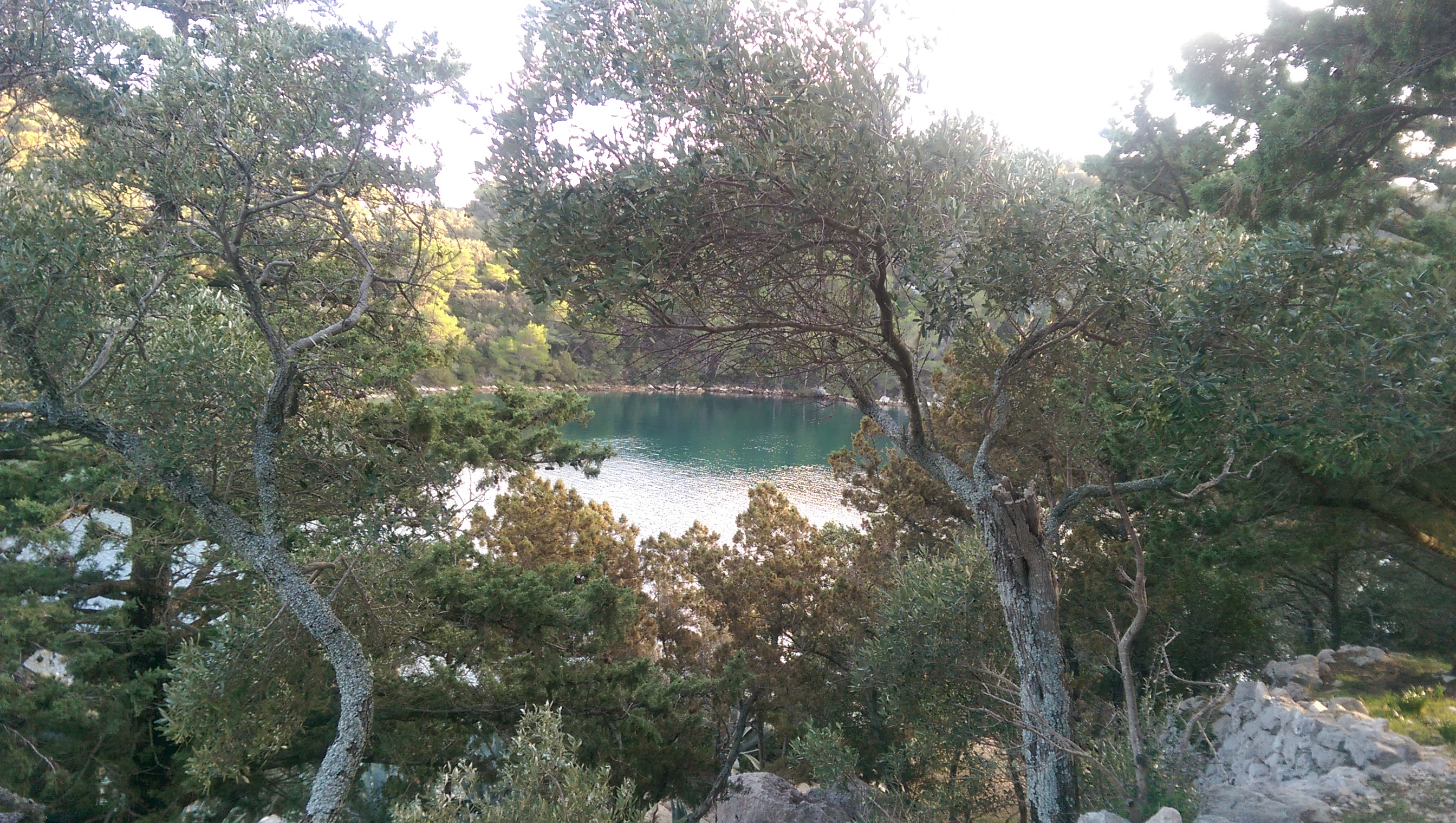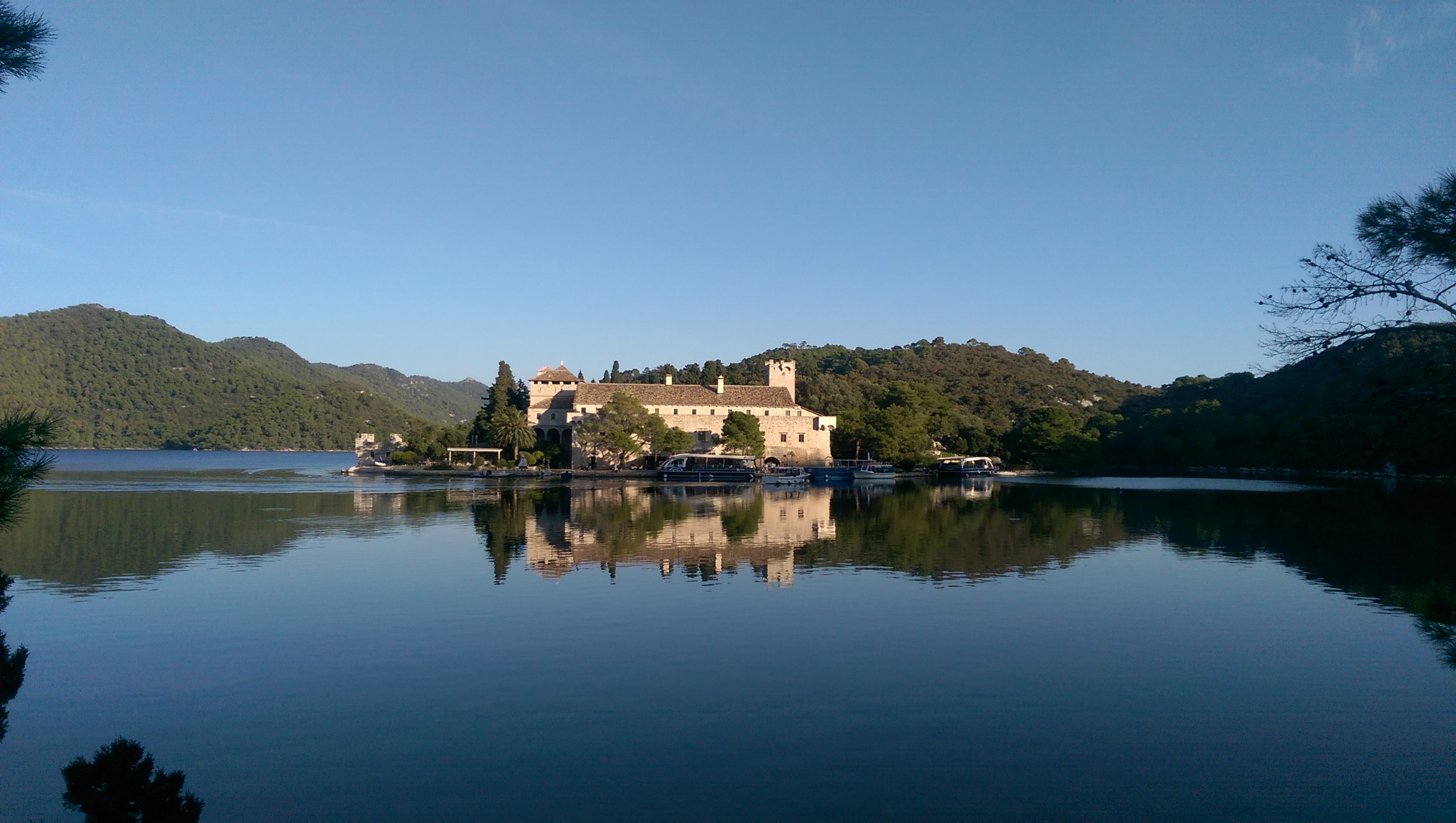WetlandLIFE writer Victoria Leslie reflects on her visit to the Croatian island of Mljet where she attended a conference exploring the collaborative potential between artists and scientists, organised by PowerProgressiveArt.

According to legend, Odysseus tarried on the island paradise of Ogygia for seven years, in the company of the nymph Calypso and her retinue, while his wife Penelope pined for him back in Ithaca. Both the Maltese island of Gozo and the Croatian island of Mljet were known in ancient times as ‘Melita’ – the alleged location of Ogygia – and though it is generally supposed that Malta has the greater claim, if you have ever visited Mljet, you can see why it was believed to be a mythical place. With its azure waters and forests of pine, Mljet is bewitchingly beautiful, rich in wildlife with almost a third of the island granted National Park status.
Such an idyllic landscape naturally lends itself to filmmaking. However, the task PowerProgressiveArt have set themselves in producing a documentary about the natural and cultural heritage of Mljet is to look beyond the picture postcard image and to view the island through a variety of lenses. PowerProgressiveArt has an impressive résumé, having organised international symposiums, exhibitions and projects championing the inseparability of nature and culture, most recently orchestrating the exhibition, Natura: Welcome to the Jungle in cooperation with the Sabah Wetlands Conservation Society in Malaysia. The title of PowerProgessiveArt’s latest endeavour, Emerald, Blue, Silver and Gold alludes to both the palette of Mljet’s Adriatic landscape and its intrinsic value as a natural and cultural resource, conveying a treasured environment, vital to preserve, evinced in part by the fact Mljet National Park is the oldest marine protected area in the Mediterranean.
Taking its cue from the interdisciplinary approaches of WetlandLIFE, PowerProgressiveArt’s aim to promote the exchange between artists and scientists sits at forefront of current thinking within environmentalism. Their recent conference brought together specialists from diverse fields to learn from each other’s unique perspectives, focusing on the island and beyond.
The conference began with a presentation from PowerProgressiveArt’s President, Ana Gizdić, who provided an overview of contemporary art practices and interdisciplinary approaches, citing examples from the work of Betsy Damon, Jason Taylor deCaires and Celia Gregory, as well as highlighting the ongoing work of PowerProgressiveArt. Đivo Bašić from the Maritime Museum, Dubrovnik, discussed Mljet’s hydro-archaeological sites and the history of the shipping trade on the Eastern Adriatic navigational route, while Sonja Nikolić from the Ruđer Bošković Institute explored the detriment impact of industrial and technological development on the natural world, calling for politicians and scientists to work together in confronting environmental problems. Neven Trenc, a geologist and a conservationist at the Ministry of Environment and Energy, argued for more engagement between artists and conservationists and Mr. Igor Peteh from the Faculty of Teacher Education, University of Zagreb discussed the overuse of natural resources and the environmental work of controversial filmmaker Leni Riefenstahl, particularly focusing on her underwater photography. Osvin Pečar and Aleksandar Popijač from the Mljet National Park provided an insight into the unique biodiversity of the island, highlighting especially Mljet’s wetlands, salt lakes and coral fauna. As for myself, I discussed my role within WetlandLife and an initiative I set up to transform bird hides on the Avalon Marshes in Somerset into creative spaces where visitors can share and create stories.

Besides the conference, film screenings organised throughout the week in conjunction with the Ramsar Culture Network, provided fertile ground for discussion. Aviva Rahmani’s, ‘Blue Sea Lavender’ depicted our destructive tendencies, as artwork made to resemble the eponymous plant from branches and rocks and arranged in a preserve carpark, were subsequently ruined by vehicles. Rahmani’s point, that we knowingly trample on the natural world, was emphasised by her singing Puccini’s aria, “Vissi d’arte”, lamenting the loss of species habitat. Other films, including Lillian Ball’s ‘Sanctuary’ – about conservation efforts to protect the habitat of endangered Sarus Cranes under threat from overdevelopment and tourism in Lumbini, Nepal – along with Betsy Damon’s ‘Living Water Gardens’ – documenting the formation of an ecological park in the city of Chengdu in the Sichuan Province, China, which functions as a water treatment plant, education centre and wildlife preserve – showcased the power of art engagement to conserve, educate and instigate change. Other films, particularly ‘Tok’ (Flow) by Dorotea Radušić, featuring satellite shots of the Neretva Delta in the Google Maps program, revealed the power of film to offer, quite literally, fresh ways of looking at the world.
Equally engaging were the moments in-between talks and screenings which provided space for reflection and exchange. Informal dinners and walks through the nature reserve allowed artists and scientists opportunities for discussion, while scuba diving excursions offered the chance to witness the underwater filming taking place first hand; the decision of PowerProgressiveArt to cover the island from all angles, right down to the swathes of amphorae – remnants from shipwrecks – littering the harbour, reinforced their endeavour to accommodate a diverse range of perspectives. It was these moments of glimpsing how other practitioners work in the field – filming, drawing, talking, observing, writing – which I felt were the most rewarding, knowing we all had different ways of seeing the environment around us and much to share. The legend of Odysseus is only one facet of Mljet’s heritage and PowerProgressiveArt, I am sure, will uncover and create many more stories in the course of this project. I don’t know how Odysseus managed to pull himself away from such a place, even forgoing the promise of immortality to stay, but I suspect the siren-song of Mljet will endure for all of us who ventured ashore.

